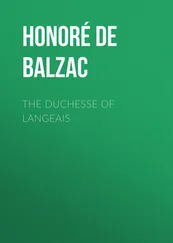Dino Dorothée - Memoirs of the Duchesse de Dino (Afterwards Duchesse de Talleyrand et de Sagan), 1831-1835
Здесь есть возможность читать онлайн «Dino Dorothée - Memoirs of the Duchesse de Dino (Afterwards Duchesse de Talleyrand et de Sagan), 1831-1835» — ознакомительный отрывок электронной книги совершенно бесплатно, а после прочтения отрывка купить полную версию. В некоторых случаях можно слушать аудио, скачать через торрент в формате fb2 и присутствует краткое содержание. Жанр: foreign_antique, foreign_prose, на английском языке. Описание произведения, (предисловие) а так же отзывы посетителей доступны на портале библиотеки ЛибКат.
- Название:Memoirs of the Duchesse de Dino (Afterwards Duchesse de Talleyrand et de Sagan), 1831-1835
- Автор:
- Жанр:
- Год:неизвестен
- ISBN:нет данных
- Рейтинг книги:4 / 5. Голосов: 1
-
Избранное:Добавить в избранное
- Отзывы:
-
Ваша оценка:
- 80
- 1
- 2
- 3
- 4
- 5
Memoirs of the Duchesse de Dino (Afterwards Duchesse de Talleyrand et de Sagan), 1831-1835: краткое содержание, описание и аннотация
Предлагаем к чтению аннотацию, описание, краткое содержание или предисловие (зависит от того, что написал сам автор книги «Memoirs of the Duchesse de Dino (Afterwards Duchesse de Talleyrand et de Sagan), 1831-1835»). Если вы не нашли необходимую информацию о книге — напишите в комментариях, мы постараемся отыскать её.
Memoirs of the Duchesse de Dino (Afterwards Duchesse de Talleyrand et de Sagan), 1831-1835 — читать онлайн ознакомительный отрывок
Ниже представлен текст книги, разбитый по страницам. Система сохранения места последней прочитанной страницы, позволяет с удобством читать онлайн бесплатно книгу «Memoirs of the Duchesse de Dino (Afterwards Duchesse de Talleyrand et de Sagan), 1831-1835», без необходимости каждый раз заново искать на чём Вы остановились. Поставьте закладку, и сможете в любой момент перейти на страницу, на которой закончили чтение.
Интервал:
Закладка:
London, June 4, 1834. – It seems that Dom Miguel is hors de combat , and is on the point of giving in and quitting the Peninsula. I gather that the signatories of the Quadruple Alliance attribute his submission to the news of the signing of their treaty. If this be so, the moral effect is all the more satisfactory, as the material result would probably not have been great.
In the English Parliament Mr. Ward declined to be satisfied with the Commission of Inquiry. Lord Althorp moved the previous question, supported by Mr. Stanley – who made an admirable speech on the inviolability of Church property – and by all the Tories. The previous question was adopted by a large majority. It cannot be pleasant for the Ministry that this vote is due only to their enemies, for whom it is a triumph, and to the four Ministers who have resigned. The real opinion of the Cabinet, the different combinations which have divided it and ruled its actions – all this is so confused and complicated that it is difficult to understand what really is the idea which governs its jerky and inconsequent mode of progression.
In the Commons Lord Palmerston has denounced the principle upheld by Lord Lansdowne in the Upper House, where every one was surprised to see a known Socinian 16 16 A follower of Socinus, who disbelieved in the Trinity and in the Divinity of Christ.
like him speak in favour of the clergy. In this matter all is contradictory. Lord Grey has wavered hesitatingly among all the combatants, not exalting one party, not urging on the others. He is shouldered, jostled, and pushed about by everybody, and he emerges in a battered condition from the mêlée . If in his friends' eyes he is still a decent, honest sort of person, in the eyes of the public he is now only a feeble old man – an exhausted Minister.
Lady Holland usually does everything that other people avoid. She went to a window in Downing Street to observe the Members of Parliament who went to Lord Althorp's meeting two days ago in order that she might speculate with more accuracy about each. Her speculations are rarely charitable. She thinks that she palliates her inconceivable egotism by flaunting it without shame; she exploits other people without mercy for her own benefit, and treats them well or ill according to calculations more or less personal. She never allows any one else's convenience to stand in her way. The most one can do is to credit her with a few good qualities, and even these are based on some interested motive. When her caprices and her exigence has worn out the patience of her friends, she tries to regain their favour by the most abject condescension. She abuses the false position she holds in society – with which well-bred people are careful not to reproach her – in order to conquer and oppress them. The position she has is, it must be admitted, the best proof of her ability. In her time she has done the most unheard-of things, and she has been forgiven everything. For instance, she gave out that her eldest daughter was dead in order not to be forced to surrender her to her first husband, and when she had ceased to care for this child she brought her back to life again, and to prove that she was not buried she had the grave opened, and the skeleton of a goat was found in the coffin. This is going a little too far! However, she is a social despot in her own numerous circle. The reason of this is, perhaps, that she does not try to force herself on any one, and that she may be said rather to rise superior to prejudice than to struggle against it. M. de Talleyrand keeps her very well in hand, and is becoming the avenger of all her acquaintance. Every one is delighted when Lady Holland is a little mishandled, and no one comes to her assistance, Lord Holland and Mr. Allen as little as any one.
Lady Aldborough came one day to Lady Lyndhurst and asked her to be so kind as to find out from her husband, who was then Chancellor, what steps she should take in an important case. Lady Lyndhurst refused, in the rude and vulgar manner which is characteristic of her, to undertake to obtain the required information, adding that she never interfered in such tedious matters. "Very true, my Lady," answered Lady Aldborough, "I quite forgot that you are not in the civil line." Lady Aldborough is witty, and what she says is brilliant, even when she speaks French. She is often a trifle too bold and free-spoken. Thus, when she heard how the Princesse de Léon had been burned to death, and when some one said that the Prince had been more of a brother to his wife than a husband, Lady Aldborough exclaimed, "What! Virgin as well as Martyr! Ah! that is too much."
The condition of the English Cabinet is very curious. Sir Robert Peel said in the House that he couldn't understand it at all; and this being so, every one else's ignorance may well be excused. What is clear to everybody is that if no member of the Cabinet is absolutely destroyed they are all wounded, some say mortally. That they are enervated is evident. I am sorry for it for Lord Grey's sake, for I am really attached to him; in the rest I have not the slightest interest. Lord Palmerston will not restore their credit. M. de Talleyrand may say what he likes. He may have a gift for the despatch of business; he may speak and write French well; but he is a rude and presumptuous person, his behaviour is arrogant, and his character not upright. Each day some new and more or less clear proof of his duplicity comes to light. For instance, how is it that, while Lord Grey is arguing loudly against King Leopold's plan for choosing himself a successor, and while Lord Palmerston seems to be of the same mind, the latter is writing privately to Lord Granville in support of the King's idea? This constantly embarrasses the Ambassadors in their relations with him, and above all puts M. de Talleyrand in a very painful position.
London, June 5, 1834. – The Duc d'Orléans writes to me, without any prompting on my part and without any obvious motive, a letter of which the point seems to lie in the following phrase, which appears to be intended to show that he does not approve of the conduct of his father's ministers: "I consider there is already a reassuring sign in this disposition to limit party quarrels to an electoral college and to wage war by manifesto alone. May this tendency in time eliminate the system of brute force, which I regret to see nowadays in all parties, and which is the favourite argument not only of the opposition but also of those in power!" I think there is good sense and good feeling in this reflection.
If the Duc d'Orléans had good counsellors I should have confidence in his future. He is intelligent, brave, graceful, well-educated, and energetic. These are excellent gifts in a Prince, and, matured by age, they might make him a good king. But those about him, both men and women, are so commonplace and small-minded! Since the death of Madame de Vaudémont there is no one of any distinction or nobility of mind or character.
Lady Granville has given a ball in Paris in honour of the birthday of the King of England. She had the gallery filled with orange-trees, and the company waltzed round them. Lamps were placed behind the flowers, so that there was very little light in the room. Nothing could be more favourable to private conversation. Eight thieves dressed to perfection came in through the garden, but such a large number of unknown men attracted attention, and notice was taken of it too soon. They saw that they had been observed, and made good their escape. Their intention seems to have been to snatch the women's diamonds when they had gone into the garden, which was to be illuminated.
London, June 6, 1834. – The English Cabinet, so feebly reorganised, does not hold its head very high; all the honours are with the seceding Ministers. Lord Grey is under no illusions, and is by no means proud of the great majority of last Monday; for, as one of his friends said to me: "This majority is not the result of affection for Ministers; it is due merely to fear that the Tories will come in and dissolve Parliament." Nothing, I think, can be truer. For the rest, the Cabinet already feels the need of strengthening. They say that Lord Radnor, a friend of the Chancellor's and a Radical big gun, will be made Lord Privy Seal.
Читать дальшеИнтервал:
Закладка:
Похожие книги на «Memoirs of the Duchesse de Dino (Afterwards Duchesse de Talleyrand et de Sagan), 1831-1835»
Представляем Вашему вниманию похожие книги на «Memoirs of the Duchesse de Dino (Afterwards Duchesse de Talleyrand et de Sagan), 1831-1835» списком для выбора. Мы отобрали схожую по названию и смыслу литературу в надежде предоставить читателям больше вариантов отыскать новые, интересные, ещё непрочитанные произведения.
Обсуждение, отзывы о книге «Memoirs of the Duchesse de Dino (Afterwards Duchesse de Talleyrand et de Sagan), 1831-1835» и просто собственные мнения читателей. Оставьте ваши комментарии, напишите, что Вы думаете о произведении, его смысле или главных героях. Укажите что конкретно понравилось, а что нет, и почему Вы так считаете.












